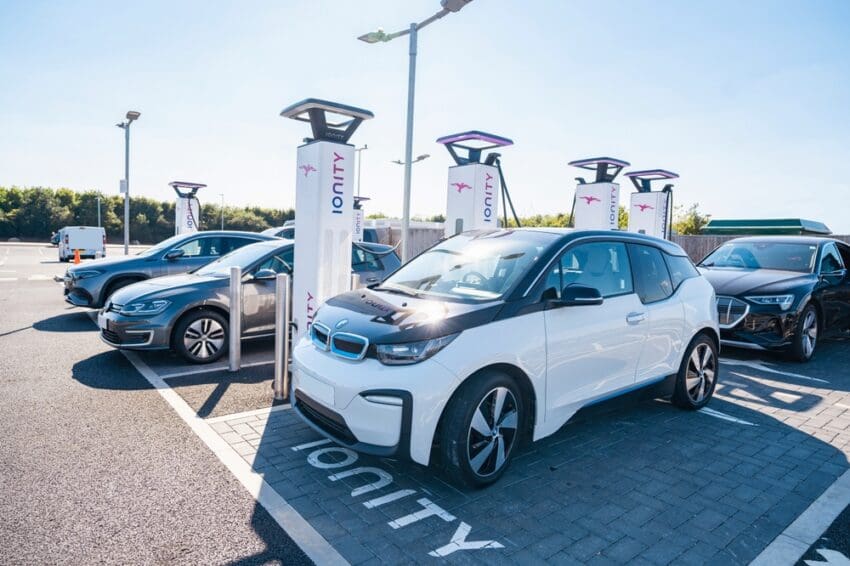
Charger regulations are proving a tough but fair way to support EV drivers
More than a year after new rules set out minimum standards for public charging points, Sam Rawson, enterprise director at EV charging platform Monta, reflects on the milestones achieved so far, their impact on the EV landscape and what these regulations mean for the future of electric vehicle adoption in the UK.
The UK Public Charge Point Regulations that came into force in 2023 require public charge point operators (CPOs) to facilitate contactless payments and transparent pricing, offer 24/7 phone support, as well as ensure 99% reliability, participate in open data protocols, and offer roaming options.
These requirements are bound to instil confidence in public charging and encourage more drivers to switch to electric. However, infrastructure will need to be more secure as platforms become more interoperable, while CPOs need to adjust their services to suit evolving needs. Additionally, incentives need to be put in place for providers and manufacturers, to properly aid innovation.
But, questions surface as to how the UK Government’s new rules on EV service delivery will enhance the experience for both new and seasoned EV drivers across the country.
Contactless payments
One policy area regards CPOs needing to allow payment via a contactless payment terminal, to help new EV adopters overcome concerns around new software platforms. This is a great move for EV drivers, on the whole. The ability to simplify payment options at public charge points has been a contentious issue for EV drivers for quite some time.
Yes, it creates a few more barriers – particularly in terms of capital expenditure. But overall, this will prove to be the right decision to boost the adoption of EVs in the market. This is because drivers have a more seamless and secure experience when visiting charge points that they may never have visited before. It’s a matter of interoperability across various providers.
Through software platforms like Monta, payment terminals, from multiple approved manufacturers, can be integrated with ease. This reduces complexity from the perspective of CPOs, too.

24/7 Support
The ordered offering of 24/7 helpline support also helps users drive adoption, and maintain strong customer service.
This points to another issue that early adopters of EVs have experienced when visiting a public charge point; if a hardware issue were to happen, such as a cable getting locked in that charge point, drivers need the confidence that they can pick up the phone to somebody who is able to help them.
A 24/7 helpline will go a long way in instilling confidence among EV drivers. If they know which particular facility they’re visiting, there will be somebody on the end of a phone call to provide assistance, whether it be at peak time or three o’clock in the morning. Additionally, this provides an alternative channel for drivers who aren’t comfortable using mobile apps.
Charge point facilities are also susceptible to grid outages. The charge point might be in some sort of error state, which may just be a simple matter of sending a reboot command, from somewhere remotely. So rather than being stranded somewhere with no other option, a quick phone call to get that charge point back up and running again can save a lot of headaches.
Reliability, visibility and accessibility
99% reliability, from the perspective of CPOs, holds them accountable for their hardware out in the field. They may be able to put the infrastructure in the ground, but they also need to ensure that it’s maintained and serviced.
It’s a tall order, but 99% reliability, when their infrastructure is managed effectively, is perfectly achievable. This is a metric that’s really going to help the UK’s public charging infrastructure become a very comfortable place for somebody to drive around and feel that they can go to a public charge point and without that frustrating experience of a facility being out of use, but listed as available on an app.
With range anxiety remaining prominent among drivers, it’s vital that CPOs ensure that there are services available to people in rural areas as well as urban areas.
Open data protocols
An additional policy area to consider is the enforcement of Open Charge Point Interface (OCPI) data collection, on the part of CPOs. This is a controversial one because CPOs can see this as quite sensitive to their business – they may feel like competitors may use this data.
However, the importance of this, is that again, service providers are being held accountable for various metrics regarding their data. This includes the reliability and uptime of their charge points; how effective the processes being undertaken across their 24/7 help centres are; and which charge points are currently disabled.
It is vital that we have a transparent network of charge points throughout the UK; public information that adopters can use to determine which providers are effective and trustworthy, in regards to a network that they’re going to use while they’re out on the road.

Balancing regulation with incentivisation
These requirements set the benchmark high and may deter new CPOs from entering the industry. In addition, the penalties for poor performance – £10,000 per infringement, per charge point – are also discouraging for budding players that just want to dip their toe in to make a quick buck.
On the contrary, it encourages more thought-out planning, and prioritisation of customer experience delivered by existing infrastructure, over building 50,000 new facilities that may only work 50% of the time.
These regulations provide a strong framework to ensure that those that are in this industry are providing services to the best of their ability. But while these new enforcements are vital, the government should look into supporting CPOs by bolstering grants or funding options. This would allow more providers to enter this arena, and keep the space competitive.
In the early years of this industry, there were players that took government grants, and built infrastructure from the ground up, only to leave it by the wayside. They weren’t massively invested in it personally, due to the funding that they’d received. This was a flip-side of the potential for financial incentives.
Now, however, CPOs are being held accountable for the performance standards set in the long run. The knock-on effect of poorly performing hardware out in the field is the lack of confidence for EV drivers to use public charging infrastructure – which is detrimental to industry progress.
All in all, the new regulations, while punchy in terms of punishment, will make an example of CPOs that fail to deliver a consistently positive customer experience, while encouraging education of what it means to optimise services nationwide.





